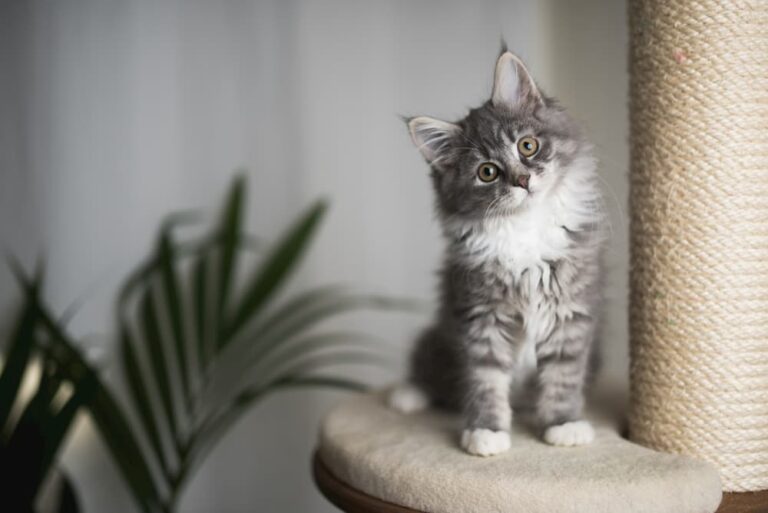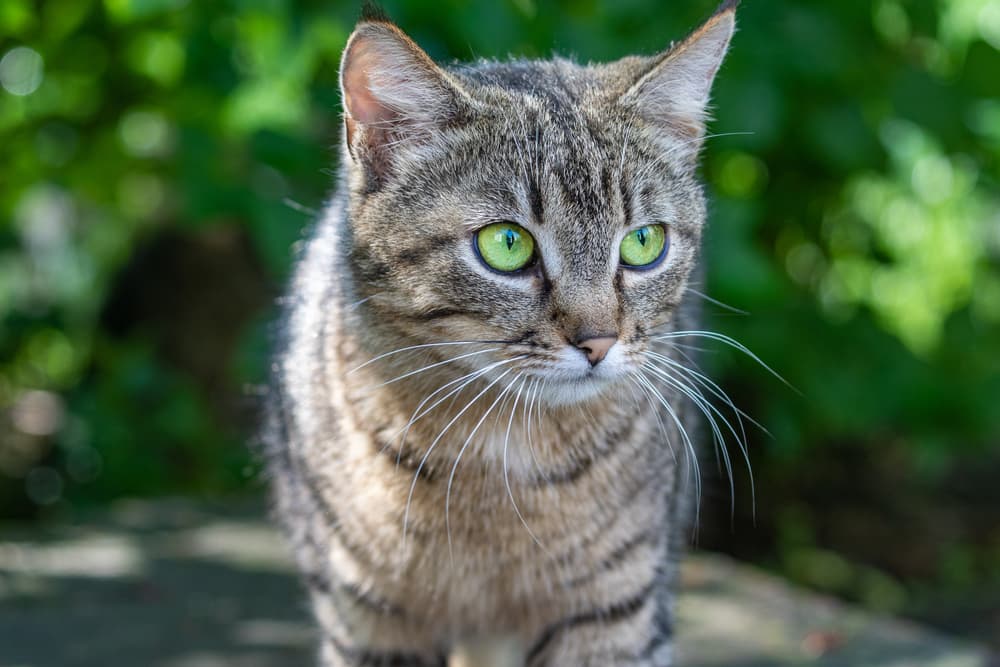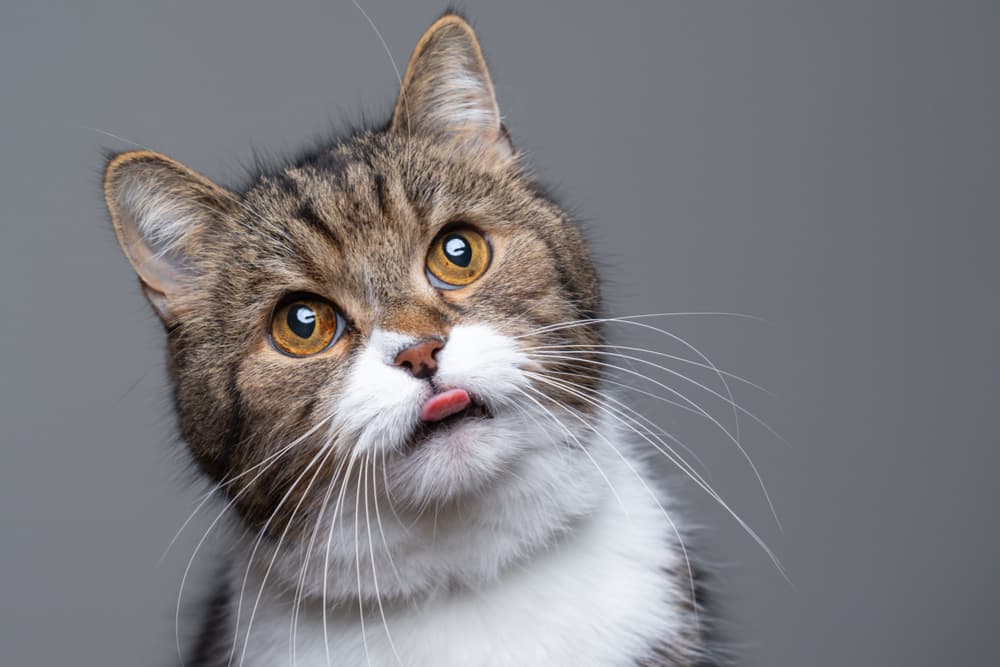Can Cats Eat Peanut Butter?

For many people, it’s common to add peanut butter to the grocery store shopping list—not just for the humans in the house, but for their furry family members, too.
While peanut butter is arguably the number one food used to help with medication administration, treats, puzzle feeders, and toys like Kongs and LickMats in dogs, it is NOT regarded the same way for cats. So, can cats eat peanut butter?
For many veterinarians, the question of whether peanut butter is a safe treat for cats is common and frequent. So, we’re here to set the record straight about whether cats can have peanut butter.
Can Cats Eat Peanut Butter?

While pet parents will not find peanut butter on a list of poisonous foods for felines, it can be dangerous for cats to eat—even in small amounts. The thick, sticky texture of this food can increase the risk of choking. It can also cause weight gain, vomiting, diarrhea, and contain potentially toxic sugar substitutes like xylitol.
Nutritionally speaking, peanut butter offers no benefit or value to cats. It can even be harmful because it is high in calories, trans fatty acids (harmful fats that can lead to the development of obesity and diabetes), and it can even be contaminated with aflatoxins. Aflatoxins are mold that, under the ground, contaminates peanuts and leads to cancer development.
If you do offer peanut butter occasionally to your cat, it’s best to give a few small licks under supervision, and follow up with fresh water.
It’s also not recommended to encourage outdoor cats to develop a taste for peanut butter. This becomes dangerous for outdoor cats who may try to eat peanut butter that is actively wrapped around insect or rodent poisons or put into traps as bait.
Do Cats Like Peanut Butter?

Overall, most cats do not have the same love affair with peanut butter as many dogs do. Cats are quite preferential when it comes to texture, temperature, shape, and size of their food. The texture of peanut butter—out of a jar, on a spoon, or on the tip of your finger—is not as popular with cats compared to tuna, sardines, salmon and even olives and marshmallows!
However, some cats do enjoy the taste of peanut butter. For the few cats that do like it, I would encourage the use of peanut butter to be limited to medication administration. There are many other safer and healthier snacks and vehicles for medication delivery for cats! Please talk to your veterinarians about these safe alternatives.
Precautions When Giving Peanut Butter to Cats

Because of the numerous risks described above and the lack of nutritional value, I do not recommend giving cats peanut butter in any circumstance. However, there is one situation in which using peanut butter is accepted by some experts and that is as a delivery mechanism for administering medication if all other methods haven’t worked.
In these rare instances, there are a few important points to keep in mind.
Read the labels closely. Sugar-free peanut butters may include a sugar substitute called xylitol. Xylitol is severely toxic to dogs and cats when ingested, causing life-threatening low blood sugar and liver failure.
Watch for added sugar. While we want to stay away from sugar substitutes like xylitol, peanut butters that contain large quantities of sugar are also detrimental to cats. Just like in people, excessive sugar intake can lead to obesity, inflammatory changes in the body, the development of diabetes and, in some cases, cancer.
Monitor the sodium in a product. Look on the label for the salt content in the peanut butter. High sodium levels are bad for all species but can significantly impact feline heart patients and high blood pressure patients in a negative way. Instead, look for unsalted peanut butter for the safest option.
Keep an eye out for allergic reactions. While cats are known to have food allergies of varying severities, peanut butter allergic reactions can quickly become life-threatening. If your cat is exhibiting any of the following signs of an allergic reaction, please make sure to seek veterinary attention as soon as possible:
- Vomiting
- Diarrhea
- Lack of appetite
- Severe itching
- Facial swelling
- Chronic ear infections
- Hair loss
- Weight loss
Can Cats Eat Peanuts?

Many pet parents assume that because peanuts are high in protein, they are a good choice for their carnivorous (protein-loving) cat. However, while peanuts are technically not toxic and generally safe in small amounts for cats, they aren’t recommended on a regular basis.
This is due to the same nutritional reasons associated with peanut butter—peanuts are very high in fat and can lead to obesity.
If you are going to offer peanuts to your feline friend on special occasions, there are a few things to remember. It’s very important to only use raw, unsalted, plain peanuts. Offering cats the commercially produced versions will only introduce extra salt, spices, seasonings, and oil into your cat’s diet, which can cause significant gastrointestinal upset. Secondly, only offer peanuts that have been removed from the shell. The hard shell can become a choking hazard or put your cat at risk of intestinal obstruction.









